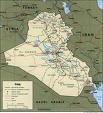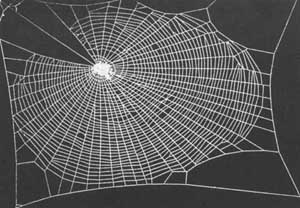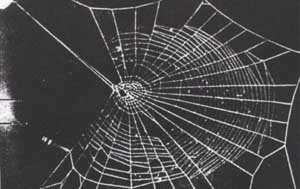Waking up to Liminality

We blog in real time. When others sleep, we lend our musing to a community and then, as the sun and moon slowly turn the tides around the globe, we wait for these faceless names to rise and send us, in turn, their own thoughts.
As I wake, I imagine Mone waking only a few hundred kilometres away. I imagine Erin O’Brien, Carla, Josh Williams, Burdockboy, a, and the Duchess in various stages of sleep or insomnia. I imagine The Fool preparing dinner with his son (and perhaps pulling an old Jerry boot out of the box in the garage to make sure his son gets a proper musical education…ahem). Daytime for me is night time for many, yet as our ideas confront one another in this new space, the blogsphere, day and night, Europe and North America, winter and summer are all erased in creative synthesis. Where there used to be borders, (at times, even prohibitive borders), now there is a fountain of creation.
This is liminality. A liminal space is a threshold. It is the undefined space between two borders; it is tectonic plates colliding and in its wake, volcanoes erupting.
We are bloggers. But what is being created when we “blog”? Watch this video:
The Internet, Web 2.0, the blogosphere: together they are a point of liminality between an infinite number of worlds. At its heart is, perhaps, a social community. Stories and information flow freely from Alaska to Germany to South Africa in a way that allows us to imagine the “other” like never before. We are in a position to understand and discuss differences more than ever before, even to self-educate ourselves.
My sense of myself in relation to space has changed considerably: for example, I identify and interact far more with you, the reader of this blog, than with my neighbours just
 across the way…even when I look into their windows and watch the very real arguments and dinners and games they share unknowingly with me, the distance between my life and theirs is as great as the physical distance between my body and that of an Australian. Physical space has evaporated. But what has taken its place? For all the creation and social cohesion that emerges from this collision of worlds, do we have anything to fear? When we say that we have torn down old borders between time zones and cultures for the sake of sharing intellectual wealth, how far are we from the logic of capitalism, which tries to tear down economic borders in order to share (or hoard) economic wealth?
across the way…even when I look into their windows and watch the very real arguments and dinners and games they share unknowingly with me, the distance between my life and theirs is as great as the physical distance between my body and that of an Australian. Physical space has evaporated. But what has taken its place? For all the creation and social cohesion that emerges from this collision of worlds, do we have anything to fear? When we say that we have torn down old borders between time zones and cultures for the sake of sharing intellectual wealth, how far are we from the logic of capitalism, which tries to tear down economic borders in order to share (or hoard) economic wealth?Yet, as the video suggests, the digital revolution is changing far more than the ease with which we communicate. It is changing the way we think about our identities, our economies, and our collective selves: in short, it has changed and is changing the logic by which we live our lives.
When we tear down borders and conventions, we seem to strip authority of its power. And when authority seems to be absent, we fool ourselves into thinking that we are free. Just as proponents of the free market exult in the abolition of economic restraints, we bloggers often delight in the freedom and democratic tendencies of what is now known as Web 2.0. But authority never leaves us; someone or something is always calling the shots. “Authority” in capitalism is not one man, nor one corporation, but the very logic that structures it. Similarly, there is an invisible hand that controls the Internet. The question is: what damage can it do?





















